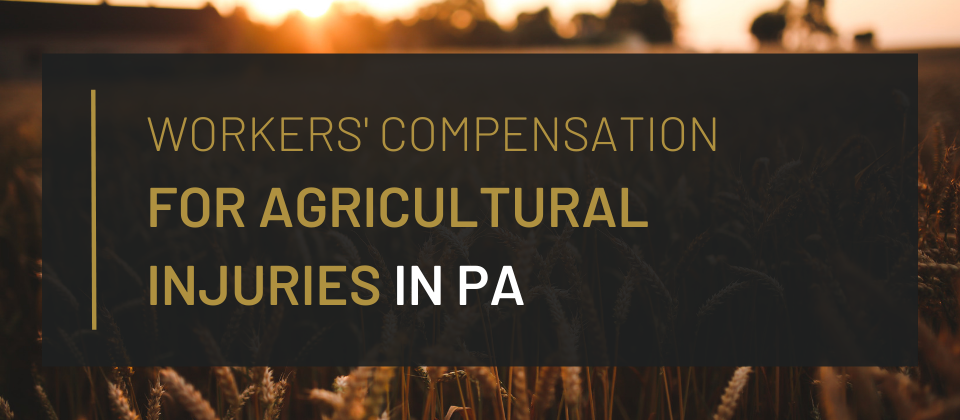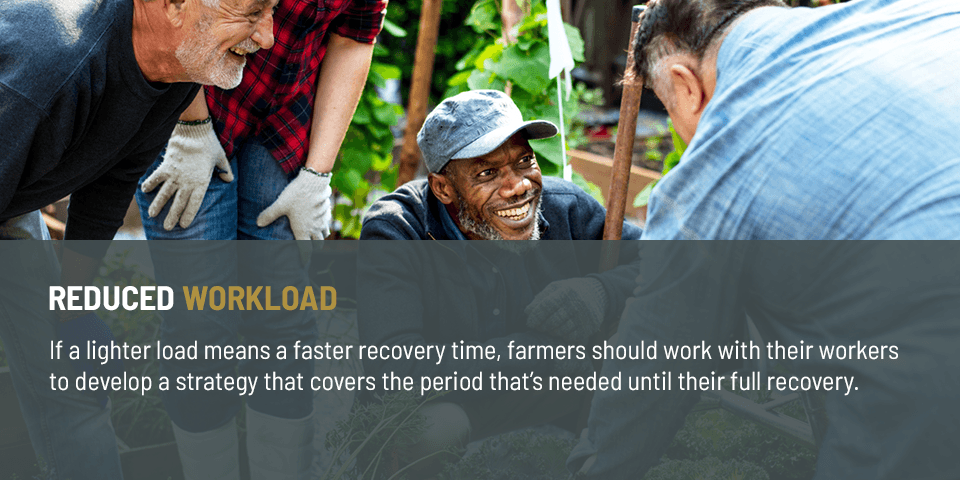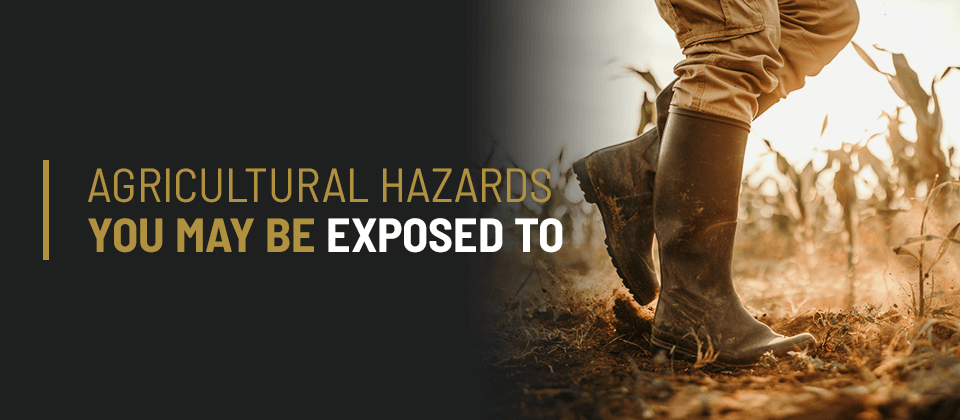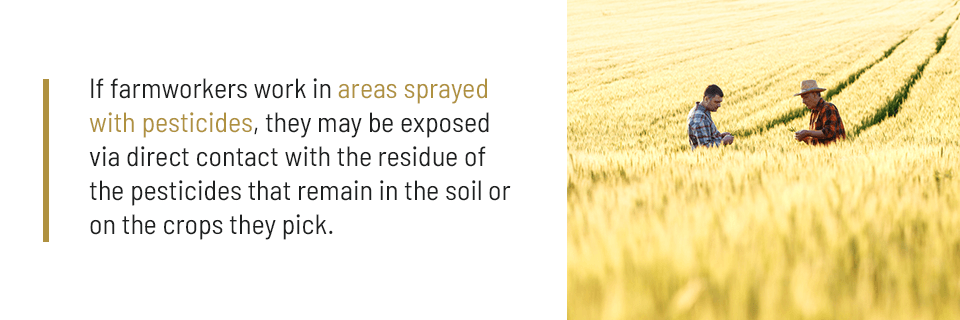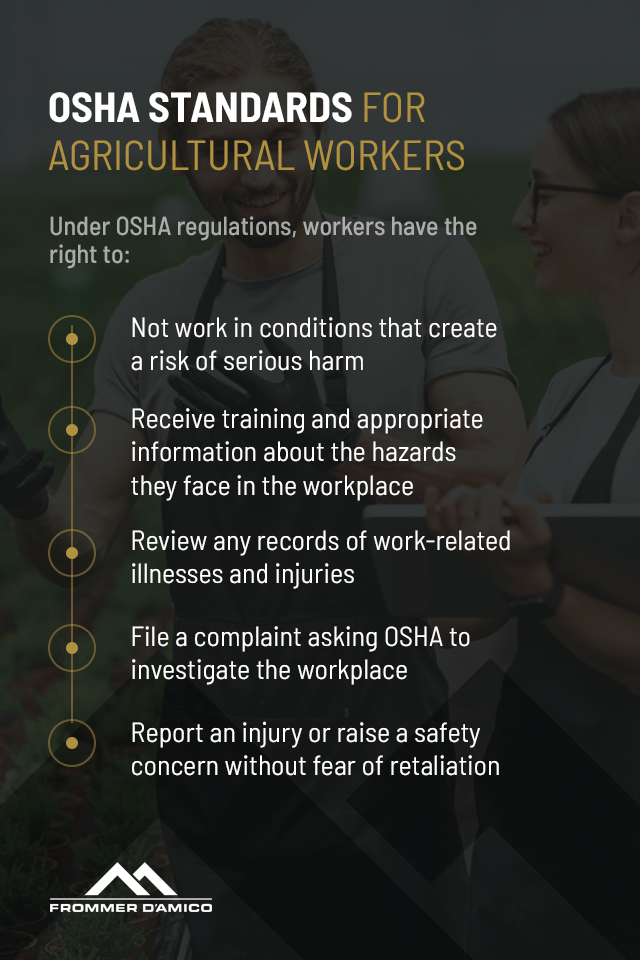Table of Contents
Agricultural work injuries in Pennsylvania include machine injuries such as tractor injuries, crushing injuries and other potentially life-threatening injuries. There may be some compensation for being injured while working on a farm, but such workers’ compensation cases are more complex.
If you have been injured in an agricultural job, it is important to contact a workers’ comp attorney to ensure you get any benefits that you may be eligible to receive.
Agricultural Exclusions for Workers’ Compensation in PA
The subject of workers’ compensation for agricultural workers in Pennsylvania can be a complex one. Pennsylvania is one of 21 states where the workers’ compensation system provides protection for some but not all agricultural workers. As a result, many farmworkers in the state believe that workers’ compensation for a farm accident or illness is not available to them. This is not the case.
Who is excluded from the workers’ compensation system? Farmworkers who work less than 30 days a year and earn less than $1,200 a year are not covered by workers’ compensation. If a farmer employs their minor children (under the age of 18) or their spouse, they will not be covered by workers’ compensation unless they have contacted the Department of Labor and Industry and asked to be covered.
All other agricultural workers are eligible for workers’ compensation. Unfortunately, many Pennsylvania farmers believe they do not need to carry workers’ compensation regardless of how many people they employ or for how long. This is wrong. Even if a few workers are not exempt, the employer must still carry workers’ compensation liability coverage.
Since agricultural injuries tend to be serious, seek the advice and representation of an experienced attorney. Agricultural workers rely on their physical condition to make their living, and a serious injury can result in months of no pay and no work. An agricultural workers compensation attorney in PA can help you review your options.
Common Challenges With Workers’ Compensation for Agricultural Workers in PA
Farm laborers face several challenges in their quest for workers’ compensation benefits when they have been injured or have suffered an illness due to a work-related incident.
1. Not Aware of Possible Eligibility
Many farm laborers may not be aware that they are eligible to receive workers’ compensation benefits or think that no agricultural workers are eligible. As we noted above, however, unless a farm laborer falls into one of the excluded categories, they may qualify for workers’ compensation benefits if they have suffered a work-related illness or injury.
2. Fear of Retaliation
Many farm laborers fear retaliation from an angry employer who is upset because an injured or ill worker has filed a workers’ compensation claim. Thus they are reluctant to file farmers workers comp claims in PA, believing they will be fired if they do. It is important to know that retaliation of any kind against a worker who has filed a workers’ compensation claim is illegal.
3. Reduced Workload
When an employee has suffered a work-related illness or injury, their doctors may recommend they have a reduced workload to speed full recovery. This often creates a problem for the farmer and the worker because few farms have jobs that qualify as reduced workload or light-duty.
Farmers benefit, however, when a skilled worker can return to the job full-time. If a lighter load means a faster recovery time, farmers should work with their workers to develop a strategy that covers the period that’s needed until their full recovery.
4. Issues Across Borders
Many farm laborers come to the United States on work visas. If these laborers suffer a work-related injury, it can be difficult to provide workers’ compensation across international borders. Issues like medical care, the qualifications of doctors and the expenses associated with injuries can cause confusion. Doctors in foreign countries may be unfamiliar with the American workers’ compensation system.
5. Delayed Farm Labor Injury Reporting in PA
Farm laborers work hard at their jobs. They ignore injuries that might stop the rest of us dead in our tracks because that’s what working on a farm requires. As a result, injuries suffered in a work-related accident or an illness contracted on a farm will often go unreported for a long time.The danger is an unreported illness or an injury can lead to serious consequences.
The Pennsylvania workers’ compensation system does have time limits. Workers have 120 days to report their illness or injury to their employer. If the illness or injury is not obvious— for instance, carpal tunnel syndrome or an illness caused by exposure to a pesticide —the 120-day reporting period could start as soon as a doctor diagnoses the condition.
If the employer and their insurance company deny workers’ compensation benefits, an injured or ill worker has three years from the date of their injury or when their injury or illness was diagnosed to file a claim.
Another challenge with an agricultural injury is the seriousness of injuries. The more serious the injury, the more it will cost the employer’s insurance company since it pays your medical expenses. Insurers will try to offer a smaller workers’ comp settlement to avoid paying full benefits. A Pennsylvania agricultural workers compensation attorney can help you fight for the money you deserve from workers’ compensation.
Is Agriculture Work One of the Most Dangerous Industries?
Farming is considered the eighth most dangerous job in America with a fatality rate of 23.1 per 100,000 workers. That’s more than twice the rate of fatalities in other occupations that people might consider more dangerous, such as transportation, mining or warehousing
The Center for Disease Control calls agriculture one of the most hazardous industries. Not only do farmers risk injury and death, but these dangers often extend to their families as well. Such hazards include:
- Pulmonary disease
- Machine injuries
- Exposure to harmful pesticides
- Hearing loss
- Musculoskeletal injuries
- Heat stress
In 2016, the deaths of farmers and farm workers from work-related accidents averaged more than a death per day nationally — 417 in total. Tractor overturns caused the greatest number of these fatalities. Almost 100 farmers or farmworkers are injured every day in the United States. In 2014, young people suffered 4,000 work-related injuries on farms. When you consider how the number of family farms has shrunk in the past decade, that’s not a small number.
Farmers face numerous dangerous situations that can lead to severe injury or death, including the following.
1. Working in Pennsylvania Grain Silos
Working in a grain silo or bin can be dangerous in a number of ways. First, the grain dust and other impurities in the air can lead to serious lung problems. The danger of suffocation also looms — if the grain, which is normally wet and packed, breaks apart, a farmer or a farm worker can be engulfed by the grain and suffocate in a matter of seconds.
2. Electrocution
Farmers face electrical threats from numerous sources:
- Overhead power lines
- Buried power lines
- Defective wiring
- Improperly used extension cords
3. Power Take-Off (PTO)
A common injury on a farm, according to the National Agricultural Safety Database (NASD), it occurs when a limb and/or a piece of clothing becomes entangled in the PTO shaft during the power transfer between two pieces of farm equipment, such as a tractor and a bush hog.
These are just a few of the dangers that farmers and farmworkers face. Let’s look at some other hazards more closely.
5 Hazards You May Be Exposed to in the Agriculture Industry
Agriculture workers face hazards not only in the way they perform their jobs but often from the animals they tend or the crops they grow. These hazards manifest themselves differently, but all can lead to serious injury, illness or death.
1. Agriculture Hazard: Animals
As much as they love the animals they work with, farmers and farm laborers face significant hazards from them. Agriculture workers are vulnerable to infections through direct contact with an animal’s manure or their placenta if they have just given birth. Animals sometimes bite, kick, ram, trample or crush their human caretakers. While dairy farmers often drink milk raw, this can be hazardous because of the bacteria in milk.
Another danger is infection via frequent contact with contaminated soil, water or food. Anyone who has close contact with animals, including ranchers, slaughterhouse workers or veterinarians, run a greater risk of illness caused by zoonotic diseases.
What are zoonotic diseases? They are diseases caused by fungi, viruses, bacteria, parasites, protozoa or prions and transmitted from animals such as cows, goats or llamas — large vertebrate animals — to humans. Pennsylvania Zoonotic diseases include bovine tuberculosis, brucellosis, anthrax, leptospirosis, rabies and hantavirus.
2. Agriculture Hazard: Chemicals
As a hungry world demands farmers produce more food, they rely more on chemicals to grow larger amounts of crops. While these chemicals produce greater yields, they can also be quite hazardous to the health of agriculture workers, especially when you use fans to blow the chemicals around.
Pesticides pose a particular danger. They carry risks of short- and long-term illness to anyone who works on a farm. Pesticide handlers, who mix these biological agents or load the pesticides into the machines that will apply them to crops, face dangers from spills or splashes if not wearing personal protective equipment or if the equipment is inadequate or defective.
Farm workers do much of their work with their hands. If they work in areas sprayed with pesticides, they may be exposed via direct contact with the residue of the pesticides that remain in the soil or on the crops they pick. Pesticides also pose a danger to families of farmers or farm workers who carry chemical residue home on their clothing.
Exposure can occur even if you are not working in a sprayed field, such as by:
- Working in a nearby field where you may inhale the drift of the pesticide used in another area
- Eating when your hands have been contaminated with pesticides
- Eating foods contaminated with pesticides
Yes, even pausing to take a sip of a drink in a field sprayed with pesticides can be dangerous.
3. Agriculture Hazard: Machinery
We mentioned some of the dangers of machinery above, such as tractor rollovers and dangers from PTO shafts. Farmers and farm laborers face hazards from other machinery they use.
These machines can be particularly dangerous during harvest season. Many farmers or farm laborers work long hours during harvest, trying to make up lost time due to bad weather, breakdowns or equipment failure. It’s an exhausting time of year, and that exhaustion means farmers or farm laborers often don’t pay attention to the dangers of the machinery they use.
For instance, cornstalks frequently plug mechanical corn pickers when the machine moves too slowly or too quickly. Farmers or farm laborers who try to pry these cornstalks free endanger their hands and arms. The rollers in a corn picker rotate at about 12 feet/second. So even if a farmer is 3 feet away while pulling a stock of corn from the machine, they have less than half a second to release it once the rollers start again.
Farmers not only use big machinery like combines and corn pickers but also frequently use smaller machines like ATVs to visit areas of their farm. ATVs running on uneven ground can roll.
4. Agriculture Hazard: Noise
The farm is a noisy environment — tractors, combines, corn pickers and other equipment generate a lot of sound. Consider the noise created by a chainsaw when cutting wood. About 10 percent of agriculture workers are exposed to sound that rises above 85 decibels, which is the level that the NASD says that groups promoting hearing conservation recommend taking action to protect a worker’s hearing in an industrial setting.
The NASD also reported that studies done at several Midwestern universities show hearing loss is a significant problem for farmers of all ages. By the age of 30, hearing loss has become a problem for many farmers and farm laborers. About 25% of younger farmers or workers may experience hearing loss, while 50% of older farmers or workers are in danger.
5. Agriculture Hazard: Weather
While working in cold temperatures to make repairs on the farm or to look after animals can lead to problems like frostbite, the greatest dangers that farmers and farm workers face come from the sun and warm weather — skin cancer and heat stress.
Farmers and farm laborers spend long hours in the sun every day. Unfortunately, long hours in the sun without proper protection can lead to skin cancer. While farmers frequently wear ball caps or other headgear to provide some protection for their faces, their arms and the back of their necks are often unprotected. The NASD reports studies at the University of Iowa found other forms of cancer, such as leukemia and lymphoma occur 25% more often among people who work on a farm than among the general public
Heat stress may be a more immediate problem. Farm workers often face high temperatures and humidity during their long hours each day. Combined with a farm’s heavy workload, a worker may see the chances of suffering from heat stress increase.
OSHA Standards for Pennsylvania Agricultural Workers
Since farm laborers face so many hazardous work conditions, the United States Department of Labor’s Occupational Health & Safety Administration (OSHA) has created standards for farm laborers. These standards cover all agricultural operations.
Workers’ rights comprise some of the standards. Under OSHA regulations, workers have the right to:
- Not work in conditions that create a risk of serious harm.
- Receive training and appropriate information (in a language they understand) about the hazards they face in the workplace, how they can prevent them, and the applicable OSHA standards.
- If they wish, they can review any records of work-related illnesses and injuries.
- If workers believe that their workplace constitutes a serious hazard to their health or that their employer is not observing OSHA’s regulations, they have the right to file a complaint asking OSHA to investigate the workplace. All identities will be kept confidential by OSHA.
- Workers will have a legal right to report an injury or raise a health or a safety concern with OSHA or with their employer without fear of retaliation. If retaliation has taken place for exercising this right, a worker can file a complaint with OSHA, but they must do so within 30 days.
In PA, according to OSHA, 4.6 in 100 agricultural workers suffered on-the-job injuries or illnesses that forced them to miss work in 2017. The Bureau of Labor Statistics says 581 agricultural workers were killed across the country in 2017.
Have a PA Farmers Workers Comp Claim? Contact Our Experienced Workers’ Compensation Attorneys
In Pennsylvania, undocumented workers may be subject to different rules, so if you are not eligible to work in the United States, you will want to get legal support to ensure you protect yourself. In fact, if your situation is irregular in any way, contact a workers’ comp attorney. You can reach a certified agricultural workers compensation attorney in PA by contacting Frommer D’Amico today for a free consultation.
You can reach us at 717-400-1000 or visit our contact us page where you can tell us about your situation and leave us contact details. A member of our team will get back to you as soon as possible.
